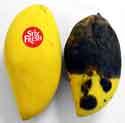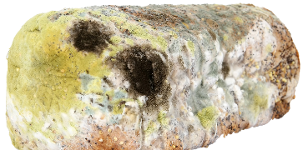Companies
Nonprofit Pickup Service Makes It Easy For Restaurants To Compost Food Scraps
 The owners of an Ohio eatery have partnered with a local nonprofit “food waste composting courier” whose mission is to address the “logistical problem of collecting food waste separately from traditional waste.” GoZERO Services picks up the Crest Gastropub’s food and kitchen waste and composts it. Restaurants are given a plastic bucket with a tight-fitting lid from GoZERO services in which to place food scraps. The scraps are eventually dumped in a bin which is picked up by GoZERO and transported to the composting site. Residents can use the service too for a subscription fee.[Image Credit: © GoZERO Services Ltd.]
The owners of an Ohio eatery have partnered with a local nonprofit “food waste composting courier” whose mission is to address the “logistical problem of collecting food waste separately from traditional waste.” GoZERO Services picks up the Crest Gastropub’s food and kitchen waste and composts it. Restaurants are given a plastic bucket with a tight-fitting lid from GoZERO services in which to place food scraps. The scraps are eventually dumped in a bin which is picked up by GoZERO and transported to the composting site. Residents can use the service too for a subscription fee.[Image Credit: © GoZERO Services Ltd.]
Innovations
German Researchers Develop Infrared Scanner That Senses Food Freshness
Company Creates Stickers That Keep Produce Fresher Longer

Kirkland, Wash.-based start-up Stixfresh has developed a stick-on label it claims can keep fruit fresh for up to 14 days longer, thereby helping to reduce food waste. The coating on the stickers is made from beeswax and other natural ingredients that have a GRAS (generally recognized as safe) status from the FDA. The compounds work together to create a protective layer around the fruit. By slowing down the ripening process, Stixfresh labels can extend the freshness of a wide variety of fruits by up to 50 percent. The company is launching a crowdfunding campaign in February to give consumers anopportunity to test the product and join the brand. [Image Credit: © STIXFRESH]
Other
Oregon Is Latest State To Legalize Harvesting Of Roadkill For Use As Food
 Oregon recently enacted legislation that legalizes the harvesting and use of roadkill as food. The state is the latest of about 20 states that allow people to scoop dead animals off the road and serve them for dinner. One of these is the state of Washington, which issued 1,600 roadkill salvaging permits within one year of legalizing the practice in 2016. The rules vary by state, though most require timely reporting of the collection to authorities, and most absolve the state of responsibility if the meat turns out to be stomach-churning. Oregon allows the salvaging of deer and elk and for human consumption only. People who pick up a carcass must apply online for a free permit within 24 hours, and they must turn over the animal's head and antlers to the state wildlife agency within five business days.[Image Credit: © Free-Photos from Pixabay]
Oregon recently enacted legislation that legalizes the harvesting and use of roadkill as food. The state is the latest of about 20 states that allow people to scoop dead animals off the road and serve them for dinner. One of these is the state of Washington, which issued 1,600 roadkill salvaging permits within one year of legalizing the practice in 2016. The rules vary by state, though most require timely reporting of the collection to authorities, and most absolve the state of responsibility if the meat turns out to be stomach-churning. Oregon allows the salvaging of deer and elk and for human consumption only. People who pick up a carcass must apply online for a free permit within 24 hours, and they must turn over the animal's head and antlers to the state wildlife agency within five business days.[Image Credit: © Free-Photos from Pixabay]
Zero-Waste Cooking Is Top Restaurant Trend In 2019
 The National Restaurant Association says zero-waste cooking in restaurants is one of the major trends of 2019. The basic idea is to create menu items that make use of ingredients that would otherwise be discarded as waste. Washington, D.C.’s Teaism restaurant, for example, has come up with a way to use broccoli stems trimmed from florets. The chef grins the broccoli stems, mixes them with goat cheese and seasonings, rolls them together, breads them with panko and fries them. Another restaurant breathes new life into used coffee grounds by cold steeping them to flavor homemade coffee ice cream.[Image Credit: © jacqueline macou]
The National Restaurant Association says zero-waste cooking in restaurants is one of the major trends of 2019. The basic idea is to create menu items that make use of ingredients that would otherwise be discarded as waste. Washington, D.C.’s Teaism restaurant, for example, has come up with a way to use broccoli stems trimmed from florets. The chef grins the broccoli stems, mixes them with goat cheese and seasonings, rolls them together, breads them with panko and fries them. Another restaurant breathes new life into used coffee grounds by cold steeping them to flavor homemade coffee ice cream.[Image Credit: © jacqueline macou]
Regulation
Missouri Lawmakers Are Considering Bill To Require Food Donations

Lawmakers in Missouri are considering legislation that would require foodservice and other food companies with revenues of $5 million or more to donate ten percent of any excess edible “to needy individuals or to nonprofit organizations that provide food to needy individuals." If passed, the bill would make it a misdemeanor punishable by a $25,000 fine if it is discovered that a business is making their food inedible to avoid the donations.[Image Credit: © filmbetrachterin from Pixabay]
Washington State Legislators Introduce Food Waste Bill
 Three Washington state Democratic legislators have introduced a bill to fight food waste that has the backing of a broad coalition of food producers, manufacturers, retailers, and food banks. HB 1114 establishes a goal to reduce food waste in the state 50 percent by 2030, compared to levels from 2015. According to the bill, food waste results from the storage, preparation, handling, cooking, selling or serving of food for human consumption. The bill includes a prevention goal that includes strategies to reduce waste, disperse edible food to food banks and other productive uses, including animal feed, compost and energy production. The bill was co-sponsored by Reps. Beth Doglio, Vandana Slatter, and Jake Fey, and discussed at a public hearing on January 17 before the House environment panel.[Image Credit: © PublicDomainPictures from Pixabay]
Three Washington state Democratic legislators have introduced a bill to fight food waste that has the backing of a broad coalition of food producers, manufacturers, retailers, and food banks. HB 1114 establishes a goal to reduce food waste in the state 50 percent by 2030, compared to levels from 2015. According to the bill, food waste results from the storage, preparation, handling, cooking, selling or serving of food for human consumption. The bill includes a prevention goal that includes strategies to reduce waste, disperse edible food to food banks and other productive uses, including animal feed, compost and energy production. The bill was co-sponsored by Reps. Beth Doglio, Vandana Slatter, and Jake Fey, and discussed at a public hearing on January 17 before the House environment panel.[Image Credit: © PublicDomainPictures from Pixabay]
Copyright 2026 Business360, Inc.

